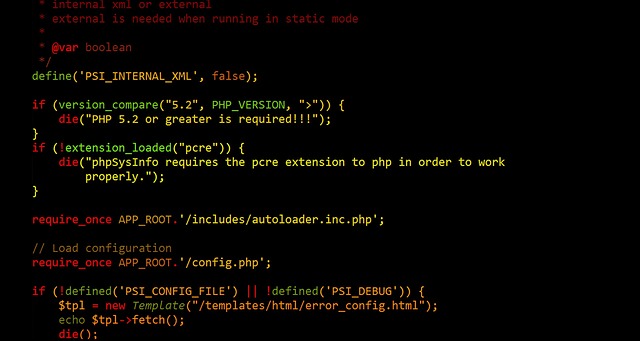As businesses strive to stay competitive, they are often faced with a difficult question: when should a business consider buying ERP software? Investing in ERP can offer immense advantages to organizations of all kinds, but it can also involve a significant amount of time, money, and effort. Does the investment make sense for small businesses that are just starting out? What about larger, more established firms that already have legacy systems in place? How do organizations know that they are ready for the purchase and implementation of an ERP system?
ERP software can be invaluable to modern businesses, but that is no surprise. According to recent research from Gartner, nearly 75% of companies have already implemented ERP software. Organizations are increasingly aware of the potential cost savings and business improvements that come from an effective ERP system. Unfortunately, many underestimate the complexities of such a project. Companies can easily find themselves in the moments of reckoning when they have to commit to a substantial commitment in the form of an ERP purchase.
In this article, you will learn how to weigh the pros and cons of an ERP implementation, the key characteristics of an ERP system, and what elements to consider when selecting an ERP provider. We will then explore the best strategies for implementing your ERP software, and explain when it is time to pull the trigger on ERP software purchase. This article will cover everything that organizations of all sizes need to know to make an informed, long-term decision on ERP software.
Finally, we will discuss the future of ERP software, and how the technology is evolving to meet the needs of today’s businesses. By the end of this article, you should have a better understanding of the benefits of ERP software, and the smartest approach to take when selecting the right ERP system for your business.
Definitions
Enterprise Resource Planning (ERP) software may be a suitable option for businesses looking to expand their IT operations and increase their efficiency. ERP is a type of business management software which helps to streamline and automate processes, allowing a business to manage its operations, make data-driven decisions, and plan for the future. In order to determine if ERP software is the right choice, businesses must consider their current operations, needs and goals.
ERP Software is a comprehensive set of applications that provides an integrated view of the core business processes, sharing data across the organization. The software can also be used to integrate with other systems, such as customer relationship management tools, supply chain management tools, and analytics tools.
Data-driven Decisions are decisions made based on data rather than opinion or intuition. With ERP software, data can be accessed quickly, with up-to-date reports and analytics available to help businesses make informed decisions.
Integration is a key benefit of ERP software which can connect a business’s existing systems, streamlining processes and improving efficiency. ERP software can also be used to create a unified view of operations, allowing businesses to measure performance and gain insights from a single source.
Cost Savings is another benefit of ERP software, as it can automate tedious processes, reducing the need for manual tasks. This can significantly improve a business’s operating costs, freeing up resources to be redeployed elsewhere.
Businesses should consider ERP software if they need to improve their operational performance or gain insights to aid decision making. With the right software in place, businesses can access data quickly and use it to drive their operations forward.
Benefits of Implementing ERP Software
What is ERP Software?
Enterprise Resource Planning (ERP) software is an integrated suite of business management applications designed to improve the efficiency of a company’s internal practices. It combines the various components of the business such as customer relationship management, finance, payroll, accounting and supply chain management into one comprehensive system. Using a standardized system, it can help improve operational efficiency, streamline communication between departments and save time and money.
Benefits of Implementing ERP Software
ERP software can bring many advantages to businesses of all sizes. Below are some of the most compelling benefits:
- Optimized processes: ERP is a useful tool for businesses of all sizes to optimize their processes. The use of automated workflows and integrated processes allow companies to respond quickly to customer demands, ensuring that order and product delivery is fast and accurate.
- Reduce costs: Implementing ERP can reduce the overall costs of doing business. By automating manual processes, it eliminates the need for additional personnel, while providing efficient tracking of inventory and other assets.
- Reduced data entry errors: Manual data entry can introduce errors into the system, reducing operational efficiency and leading to costly mistakes. As ERP automates the entry process, errors are minimized and accuracy is improved.
- Improved decision making: ERP provides an integrated view of a company’s operations, resulting in better decision making. Management can access data from a single source, enabling them to make informed decisions quickly.
- Increased accountability: The system tracks the input and output of data at each stage of the process, making it easy to identify any potential discrepancies. This provides greater accountability for all staff, as any mistakes can easily be traced and corrected.
When to Buy ERP Software
Businesses should consider implementing ERP software when they need to increase operational efficiency, reduce costs and streamline processes. It can provide a significant return on investment, and allow businesses to take advantage of the many benefits it can bring. Companies may also want to consider ERP if they are experiencing issues with manual data entry, or have limited visibility into their operations. It can be a valuable tool for any business looking to streamline its processes, reduce costs and increase efficiency.
What to Consider Before Making a Purchase
What is ERP Software?
Enterprise Resource Planning (ERP) software is a tool that helps businesses to manage their operations and resources. Built on a database platform, ERP Software acts as a centralized software system that can enable integrated management of financial accounting, distribution, human resources, manufacturing, customer support and much more. With constantly growing functionality, a business using an ERP system can access and manage many of the elements necessary to run their organization.
Advantages of ERP Software
ERP systems provide businesses with many advantages and can create a more efficient workflow. With ERP software in place, businesses are able to better plan out their operations, resources and business objectives. Furthermore, they can track budgeting, production, inventory, customer and vendor data, and organize employee information. It can also automate and streamline multiple processes that would have otherwise been redundant and manual.
Other advantages of ERP software involve improved communication, with integrated reporting and analytical capabilities. In addition, businesses would benefit from better collaboration, and with more accurate data, can make more informed decisions. Finally, ERP software allows businesses to quickly adapt to changes, such as new regulations regarding taxes or labor laws.
When Should a Business Consider Buying ERP Software?
As businesses grow and expand, it can become increasingly difficult to manage operations and resources with spreadsheets and outdated legacy systems. At the same time, staying up-to-date with changing business practices and trends is required to remain competitive. Therefore, it is important to consider an ERP system when the costs and time associated with managing with existing methods become untenable.
In addition, when an organization has multiple departments and locations, or when customer data is increasing, it can be a sign that an ERP system is needed. For example, a company dealing with a high volume of customers would need a system to better handle customer information. Likewise, if time taken to provide customer support emails or phone calls is longer than necessary, then an ERP system can help to streamline such processes.
Businesses also need to consider carefully which ERP system would better suit their needs, as well as the implementation process and ongoing management and maintenance costs. It is equally important to ensure that stakeholders, employees and trainers are adequately trained on the system. Ultimately, the goal should be to leverage the advantages of ERP software to improve the business and enable it to flourish.
Feasibility of Integrating ERP Software with Existing Processes
Understanding ERP Software
Enterprise Resource Planning (ERP) software is a tool used to manage and integrate different business processes using one centralised database. Many businesses have found that ERP can help them save costs, increase efficiency and automate tasks. ERP allows companies to manage their information and resources more effectively, giving them a better understanding of the processes and activities that are taking place within the business.
When to Integrate ERP Software with Existing Processes
Integrating ERP software within existing processes can be a smart decision for organisations that have outgrown their current systems and are looking to upgrade their operations. ERP software can provide enhanced accuracy and transparency for management, allowing the organisation to make better decisions when it comes to forecasting and stocking supplies. Additionally, the automation of various processes can assist in streamlining operations from pre-sales to aftercare and can reduce costs due to improved workflow and reporting.
Organisations should consider integrating ERP software with their existing processes if they are looking to reduce costs and have difficulty to keep operations in compliance with regulations and industry standards. The software can provide real-time insights into the organisation’s processes and operative data, allowing full visibility into the workflow and all associated costs. This type of transparency can help organisations identify opportunities for process improvement and cost reduction.
In addition, ERP software can provide enhanced data security and reduce the risks of data breaches and other IT-related issues. The software provides powerful tools for handling and storing all data centrally and securely. This can help organisations ensure compliance with various data protection regulations and industry standards.
Overall, integrating ERP software with existing processes can lead to increased operational efficiency and cost savings. Having all resources and information stored in one place can help organisations streamline their operations and reduce costs. Moreover, they can benefit from enhanced data security and improved process transparency. Therefore, organisations should consider integrating ERP software with their existing processes if they want to achieve long-term benefits.
Conclusion
It is no doubt that enterprise resource planning (ERP) software is an important tool to help businesses stay competitive and achieve their goals. With more and more organizations turning to this technology to run their day-to-day operations, the question of when should a business consider purchasing the software remains. What would be the ideal time for a business to make the move and really reap the benefits of ERP?
This is a complex decision and there is no one-size-fits-all answer. Every business has different reasons for wanting to use ERP, and when the time is right will depend on the individual circumstances of the organization. It is also important to remember that the software is constantly evolving and changing, so staying up-to-date is key. We will be exploring this topic in more depth in upcoming blog releases, so stay tuned for further discussion and insights!
To provide additional clarification on this important question, let’s go through some of the commonly asked questions associated with when to purchase ERP software:
Q: How can I tell if my business is ready for ERP software?
The best way to determine if the technology is right for your organization is to analyze the specific needs and goals of your business. Consider what challenges or inefficiencies you are experiencing and the objectives you are trying to achieve. If the software can help you reach those objectives, it may be the right time to move forward with buying it.
Q: Is there a financial benefit to using ERP software?
Yes, there are various ways in which ERP software can help optimize the finances of a business. From its improved operational efficiency to its capacity to reduce errors, the technology can often lead to a measurable reduction in costs.
Q: How much does ERP software typically cost?
The cost of ERP software is hard to generalize, as it can range from a few thousand to millions of dollars depending on a variety of factors. How many users will need to be included in the system, what modules and features are wanted, and the size of the organization will all have an influence on the cost.
Q: What kinds of options should I look for when shopping around for ERP software?
When shopping for ERP software, look for features and software scalability that are tailored to your business, as well as comprehensive customer support. Also consider whether you may require add-on services down the line, such as data migration or custom integrations.
Q: Is ERP software easy to learn and use?
Most ERP systems are surprisingly simple to learn, as the processes are usually thoughtfully designed and feature intuitive user interfaces. That being said, the complexity can vary from product to product, so be sure to do your research and learn about the features and functions beforehand.
Ultimately, to determine when businesses should consider buying ERP software is subjective and dependent on the individual enterprise’s goals and objectives. All the same, enterprise resource planning is an incredibly powerful tool that can bring countless rewards once the decision to purchase is made.



